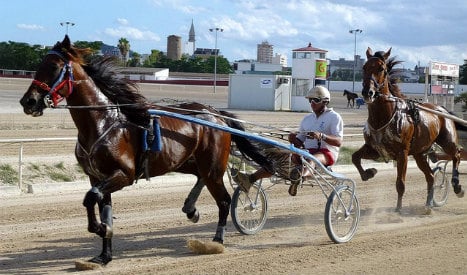In what is being hailed as a landmark case by animal rights activists, a judge refused to suspend the eight-month prison sentence of a 41-year-old man found guilty of animal abuse.
Eugenio Sánchez repeatedly beat Sorky das Pon, the horse he co-owned, with a metal bar after it was disqualified in a trotting race in Mallorca in December 2012.
Primer ingreso en prisión en España por matar a palos al caballo de carreras Sorky https://t.co/YLKEzSCMY6 pic.twitter.com/hEHZKWA7Un
— PACMA (@PartidoPACMA) October 22, 2015
The six-year old steed, which had previously won 24 out of 112 races, had broken into a gallop during a race which had prize money of €500.
“The atrocious death of this racehorse inside his own stall at the racetrack constitutes an aberration in the 21st century,” wrote the judge in her decision, handed down on September 21st, adding that to beat a horse to death in this way was one of cruelest deaths imaginable.
She sentenced him an eight-month jail term and on Wednesday rejected an appeal and refused to allow its suspension, although usually a prison sentence of up to two years is suspended for a first offence.
She argued that for the animal abuser to avoid a jail term and instead do community service “would be an absurdity and counterproductive to justice”.
The decision that saw Sánchez transferred to a jail last night was welcomed by Spain's animal rights charity Partido Animalista (PACMA).
“This is the first time in Spain ever that a person has been sent to jail for animal abuse and it’s a huge step forward,” Silvia Barquera, the president of PACMA, told The Local.
“Although we see lots of cases of people found guilty, the sentences are low and the abusers don’t go to prison. They essentially get away with it,” she explained.
“But in this case, the judge recognized the sheer barbarity of the crime and saw that justice was served,” Barquera said.
“It sends a message and sets a precedent that such animal abuse is not acceptable and will not go unpunished.”



 Please whitelist us to continue reading.
Please whitelist us to continue reading.
Member comments